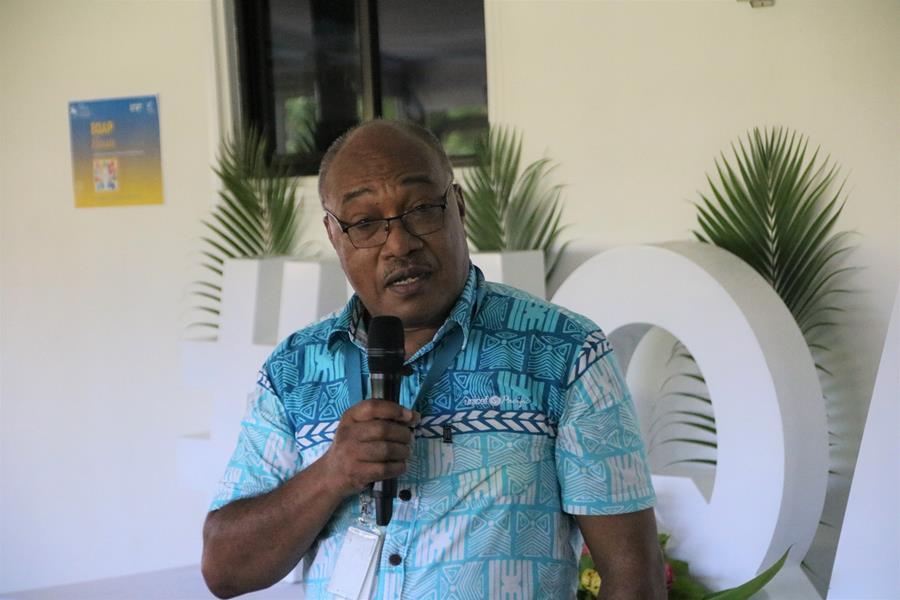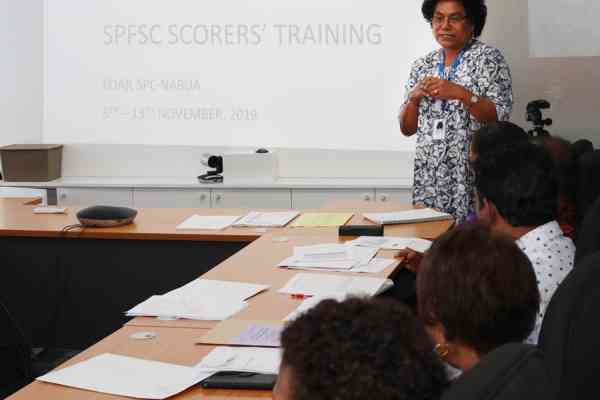(disponible en anglais uniquement)
Launch of ‘EQAP Elevate’ platform to foster dialogue on quality education
The Educational Quality and Assessment Programme’s talanoa series, EQAP Elevate, was successfully launched today at the Pacific Community’s Suva campus in Fiji. EQAP Elevate aims to draw focus to quality education in the region; to share best practices, success stories and challenges that the various education stakeholders encounter.
EQAP director Dr Michelle Belisle said the platform was created to encourage discussion on the contemporary issues of education in the Pacific.
“This was our first education talanoa session, but our conversations have often included stakeholders within communities, within education ministries, within industry and within development partners,” she said. “Hence, EQAP Elevate is a means to try to bring together all these education stakeholders, including our colleagues at SPC and in the broader education communities, to think about what quality education means in the scope of what we do in our daily lives; not just in our professional lives but also in our family and social lives," she said.
More than 80 people, including former education officials, principals, and representatives from donor partners, universities and the news media, were present at the morning event.
EQAP Elevate’s education advocates were UNICEF’s Pacific education specialist Iosefo Volau and EQAP’s education assessment specialist Geetanjali Lal.
Mr Volau spoke on the need to re-think parenting and investment in early childhood development.
“Poor foundations in the early years result in long-term, often irreversible, effects on educational attainment, health, fertility, and productive earnings, and in turn incur significant costs for governments,” he said.
He stressed the need to improve parenting practices. “Parenting programmes can help to improve parenting practices and home environments, which in turn can improve child development and school readiness,” said Mr Volau, adding that it should start from pregnancy.
Ms Lal defined the essential components of a quality curriculum, which included 21st Century skills and the periodic review of curriculum assessment. She also shared the remarkable success of a few remote Pacific schools that adopted several research-based teaching practices. These schools, whose students sat the South Pacific Seventh Form Certificate exam conducted by EQAP, recorded a high percentage pass. Only one student failed to achieve a pass. Of greater significance was the fact that more than 30 per cent of the seventh form students achieved either a distinction or excellence level.
The EQAP Elevate platform is an effort to improve dialogue and knowledge-sharing with the wider public.
“Collectively, the stories and conversations at ‘EQAP Elevate’ will demonstrate and underline the importance of quality education for every Pacific child, and for the prosperity of our Pacific region,” says Dr Belisle. “It is a fitting start to beginning this Decade of Action as we continue in our efforts to realising the 17 Global Goals.”
Future EQAP Elevate events will be livestreamed to ensure all stakeholders have the opportunity to join the conversation.
Media contact:
Irene Manarae, Communications Assistant SPC EQAP | E: [email protected]

